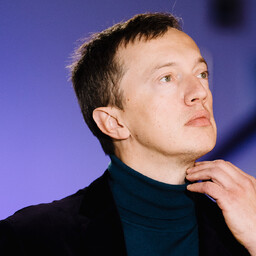USA president Donald Trump ja Venemaa juht Vladimir Putin rääkisid teisipäeval telefonis. Kremli sõnul lõpetab Venemaa 30 päevaks Ukraina energiarajatiste ründamise. USA ekspert Andreas Kaju ütleb, et kiirete kokkulepeteta on hea. See näitab, et USA ei tee kiireid mööndusi.
Kaju ütleb, et
oluline on olla ettevaatlik
. Läbirääkimiste tulemus selgub alles pika aja pärast. Trump ja Putin rääkisid telefoni. See ei olnud kõige hullem. Kaju arvab, et tegemist on
struktureeritud läbirääkimisprotsess
iga. Presidendid ei tundu palju improviseerivat.
See on hea
.
oluline on olla ettevaatlik
Tõlge fraasile: oluline on olla ettevaatlik
EN
it is important to be cautious
struktureeritud läbirääkimisprotsess
Tõlge fraasile: struktureeritud läbirääkimisprotsess
EN
structured negotiation process
See on hea
Tõlge fraasile: See on hea
EN
This is good
Teine hea märk on, et
ei tulnud kiireid kokkuleppeid
. Venemaa strateegia on tugev. Ameeriklased on oma huvide suhtes kindlad. Nad ei tee kiireid mööndusi.
See on hea
, sest Trumpi ümbritsevad erinevate ideedega inimesed. Mõned mõtlevad, et Venemaaga saaks koostööd teha.
ei tulnud kiireid kokkuleppeid
Tõlge fraasile: ei tulnud kiireid kokkuleppeid
EN
there were no hasty agreements
See on hea
Tõlge fraasile: See on hea
EN
This is good
Kaju ütleb, et probleem oleks olnud, kui Trump oleks nõustunud Venemaaga kompromissidega. Kuid praegu pole põhjust arvata, et Ameerika strateegias domineeriks suur ümberrivistumine. Ameeriklased ei teinud kiireid kokkuleppeid.
See on hea
.
See on hea
Tõlge fraasile: See on hea
EN
This is good
Valge maja ja Kremli resümeed telefonikõnest erinesid. Kremli sõnul soovis Venemaa, et Ameerika lõpetaks Ukrainale abi andmise. Trump ei rääkinud sellest. See näitab, et
vestlus oli keeruline
.
vestlus oli keeruline
Tõlge fraasile: vestlus oli keeruline
EN
the conversation was difficult
Julgeolekuekspert Rainer Saksa ütleb, et Venemaa tahtis näidata, et
initsiatiiv on nende käes
. Energiarahu kohta on vähe detaile. See on
pigem deklaratiivne kokkulepe
. Saksa arvates jääb mulje, et Venemaa suutis oma tahte kehtestada.
initsiatiiv on nende käes
Tõlge fraasile: initsiatiiv on nende käes
EN
the initiative is in their hands
pigem deklaratiivne kokkulepe
Tõlge fraasile: pigem deklaratiivne kokkulepe
EN
rather a declarative agreement
Saksa sõnul pole tegelikult rahuläbirääkimisi alanud. Need ei saa alata ilma Ukrainata. Venemaa üritas näidata, et
initsiatiiv on nende käes
. See on nende
peamine eesmärk
.
initsiatiiv on nende käes
Tõlge fraasile: initsiatiiv on nende käes
EN
the initiative is in their hands
peamine eesmärk
Tõlge fraasile: peamine eesmärk
EN
main goal
Saksa arvates vajab Venemaa pikemat pausi. Nende
reservid on väikesed
. Kurski oblasti kontrolli tagasivõtmine oli edu. Kuid Venemaa eesmärkidest on nad veel kaugel.
reservid on väikesed
Tõlge fraasile: reservid on väikesed
EN
reserves are small
US President Donald Trump and Russian leader Vladimir Putin spoke on the phone on Tuesday. According to the Kremlin, Russia will stop attacking Ukraine's energy infrastructure for 30 days. US expert Andreas Kaju says that the lack of hasty agreements is good. This shows that the US is not making quick concessions.
Kaju says it is important to be cautious. The outcome of the negotiations will only become clear after a long time. Trump and Putin spoke on the phone. It wasn't the worst. Kaju believes that this is a structured negotiation process. The presidents do not seem to be improvising much. This is good.
Another good sign is that there were no hasty agreements. Russia's strategy is strong. Americans are firm about their interests. They are not making quick concessions. This is good because Trump is surrounded by people with different ideas. Some think that cooperation with Russia is possible.
Kaju says the problem would have arisen if Trump had agreed to compromises with Russia. But currently, there is no reason to believe that a major reshuffle dominates America's strategy. The Americans did not make hasty agreements. This is good.
The White House and the Kremlin's summaries of the phone call differed. According to the Kremlin, Russia wanted America to stop providing assistance to Ukraine. Trump did not mention this. This shows that the conversation was difficult.
Security expert Rainer Saksa says that Russia wanted to show that the initiative is in their hands. There are few details about the energy truce. It is more of a declarative agreement. Saksa believes that the impression is that Russia managed to assert its will.
According to Saksa, peace negotiations have not actually begun. They cannot start without Ukraine. Russia tried to show that the initiative is in their hands. This is their main goal.
According to Saksa, Russia needs a longer pause. Their reserves are small. The retaking of control of the Kursk region was a success. But they are still far from Russia's goals.

